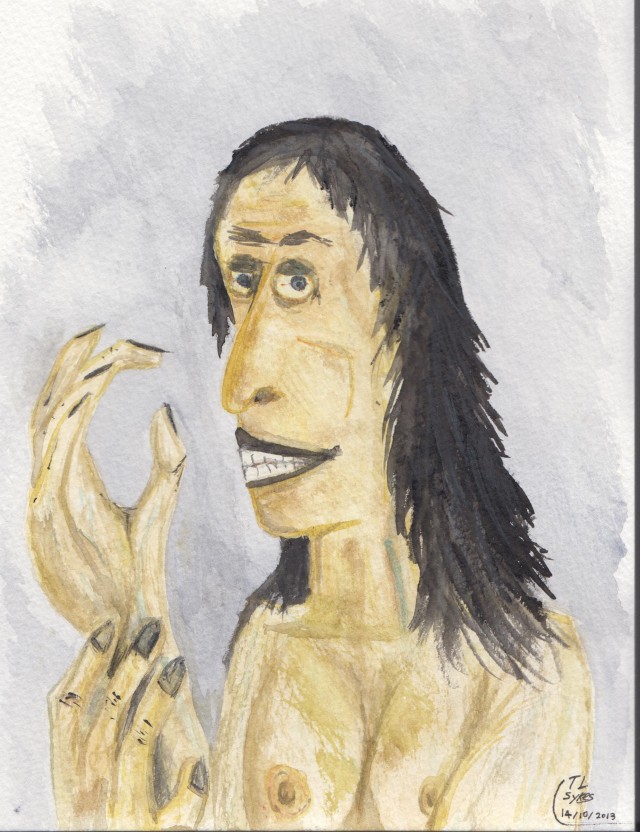Confession
When the end came, I was no gentlemen. I shoved and scratched with the rest of them – yes, scratched. Me, an upstanding man of the beast we used to call society, clawing desperately at the crowd around me like a cat in a corner.
I had dragged my wife and children kicking and screaming along the log road from Bristol.
That’s a lie. They dragged me.
I’d wanted to stay, with the house and the dogs and the fire. The servants were gone already, no surprise, but I’d decided I could handle the stoking myself. But Mary grabbed my arm ad sent me packing to the coach. For the children, she said. Our boys. A better chance to outrun the danger than try to hide from them, from the terrible black fog and the thundering guns. Others had tried and failed in the weeks before. So we fled, joining the long line of carts wheeling their sorry way to the sea, all on the hopes that the hurried whispers of rescue boats were true.
When we arrived to find the boats loading, my heart rose. There were soldiers guarding the refugees. There were iron railings and stacks of luggage. There was order. There was the chance for a deep breath.
And yet, it proved itself fleeting.
The sound of metallic marching and spreading flames echoed over the hills and the rooftops. The invaders’ herald.
The riot began, as many riots do, with an orderly queue. But then, the frantic murmurs. Distant drumming. A child cried. Two men were fighting. The line was breaking. Three men were fighting. The boats were leaving, someone shouted. Leaving, barely occupied! And we were left as meat, as bait. Worms on the hook.
Mary pushed me forward, in my husbandly duty as the vanguard of our advance, my hand in hers, her other arm around the boys. Hesitant at first, I tried to weave with little effect, and so thrust forward a shoulder. A man felt it, turned, pushed back, and I was overcome.
No, not beaten. Overcome with anger.
I kicked him forward, I remember, and freed my right hand from Mary’s grip, ready for a second strike. By this point all pretence of civility had been abandoned, and each family became a single vessel in a surging sea, as we struggled forward to the edge of the dock.
My first adversary down, I pushed forward, surprised by my own fevered strength. The details escape me here.
But this is where I clawed. I punched and shoved and screamed, and yes, scratched. Mary clung to me. My children bit and kicked at the legs of those who came too close, like the dogs they used to play with.
In time we reached the railings and I clambered up, leading the children to follow. The boat had just struck off, but we could make it, if we jumped. We could, I screamed at Mary, as she clung to William’s back. I made up my mind to spring for it, but was jostled back before I could leap. People jumping, taking our places. Fury in my eyes. I flung out an arm at the ankles of the man who’d sent me falling from the fence. He fell over the side, to the water, taking two others with him. One, a woman. His wife? His sister? Who’ll ever know? All I remember is the sound she made as she fell. Like a bird, I thought. Peculiar. And then, warped into gurgling as she hit the sea. Sent to silence as she sank.
We drew back in fear. Scattered to hide. As I looked back one last time before leaving the harbour, I saw the boat in flames.
Why am I telling you this?
I suppose it’s because I felt that someone had to.
Does it not strike you that we recovered rather quickly from the war? No, I know we are still rebuilding, re-electing, repairing. I don’t mean the physical destruction. I’m talking about ourselves. Our souls. My soul.
At the docks, I felt inhuman. I was an animal. A rat, scrabbling for shade as the hawk flies by. I was willing to throw others to the waves if it meant my family and I might have a chance of survival, however slim. Is that something we’re to forget, now the danger is passed?
The rest of England seems to think so. Now that we’re safe, it’s all flag waving and cheers. The politicians stand at the podium and speak proudly of the indefatigable Great British spirit, as though they weren’t cowering in the cellars with the rest of us when the invaders came from above.
Does it not occur to anyone else that our deliverance came by chance, not design? It was not our strength or spirit that toppled our foes. It was luck. Curse me for saying it, but I am sincere. Am I the only one that can’t go back?
All our humanity brought into questions, all of us running and squealing like rats, but with one dose of fortune we sound the trumpets and applaud ourselves. Isn’t it obscene?
I’m asking you. Isn’t it wrong?
Is redemption so easily earned?
Are we men again?
Am I forgiven, then?
Inspired by H.G. Wells’ War of the Worlds, and other apocalyptic stories from all over the place. By no means well polished, but it was a bit of fun to write.
– Sykes








